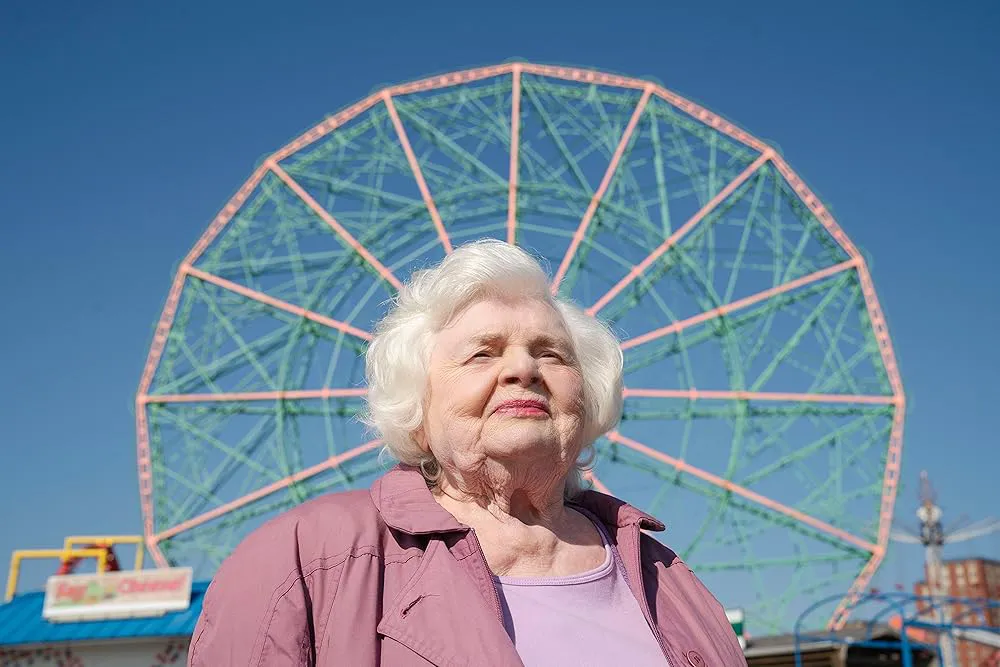The Journey of ‘Eleanor the Great’
The Cannes Film Festival has long been a platform for cinematic excellence, showcasing talent from around the globe. This year, one of the films that has generated considerable buzz is ‘Eleanor the Great’, marking the directorial debut of actress Scarlett Johansson and featuring an unforgettable performance by veteran actress June Squibb. While the film has drawn cheers and tears at its premiere, opinions on its overall effectiveness are decidedly mixed.
A Star-Studded Affair
‘Eleanor the Great’ has everything one might expect from a high-profile film debut: a talented cast, a compelling narrative, and the unique vision of an actress known for her gravity in front of the camera. Squibb, a respected figure in Hollywood, draws on her vast experience to portray Eleanor, a character who represents the struggles and triumphs of aging with irrepressible charm and wit.
However, what is most notable about Johansson’s directorial approach is how she leans into the whimsical aspects of Eleanor’s life while attempting to craft moments of profound emotional resonance. Set against the backdrop of a small-town community, Eleanor is depicted as a beloved figure whom the townspeople admire for her zest for life. The film invites the audience to reflect on themes of legacy, connection, and the bittersweet nature of getting older.
Plot Overview
The story follows Eleanor as she navigates her jubilant yet tumultuous life, filled with quirky friendships and exchanges. It’s a tale that oscillates between light-hearted moments—such as Eleanor’s interactions with her endearing friends and whimsical adventures—and heavier themes surrounding loss, loneliness, and the acceptance of life’s transitory nature.
In an especially touching subplot, Eleanor forms an unusual bond with a mysterious stranger, who reveals layers of her past that had long been buried. This connection prompts her to confront her regrets and achievements. As the narrative progresses, the film’s tone shifts between vibrant comedy and emotional poignancy, creating a juxtaposition that ultimately produces an uneven rhythm.
The Duality of Tone
One of the most significant points of contention regarding ‘Eleanor the Great’ is the unevenness of tone. Critics and audiences alike have expressed concerns that Johansson’s direction at times falters, allowing the comedic elements to overshadow the more profound narrative arcs.
For instance, key moments aimed at drawing tears from the audience occasionally feel manipulated rather than genuinely earned. Rather than providing clarity or a cathartic release, these moments often leave viewers with a sense of confusion, as the transition from laughter to heartfelt reflection does not flow as seamlessly as intended.
Some critics have gone so far as to label certain scenes as ‘crowd-pleasers’, indicating that while they might illicit cheers, they fall short in delivering the emotional impact that a film about life’s complexities should ideally provide. Johansson’s stylistic choices—the quirkiness, the humor—sometimes appear to mask deeper truths rather than uncover them.
June Squibb’s Performance
Despite the film’s tonal challenges, June Squibb’s portrayal of Eleanor is undoubtedly the heart of the film and the element that holds it together. Squibb brings authenticity and depth to the role, portraying Eleanor as not just a caricature of an elderly woman but as a fully realized character with hopes, dreams, and complexities.
Her performance is grounded in reality, providing moments of vulnerability that resonate deeply with the audience. The way she navigates between comedic timings and touching moments showcases her vast range as an actress, effectively allowing viewers to appreciate the character’s whimsical nature while still recognizing her struggles.
Critics have proclaimed that Squibb’s performance is the film’s saving grace, elevating a screenplay that occasionally stumbles. Many have remarked that her ability to oscillate between humor and poignancy feels earnest, allowing the audience to delve deeply into the emotional stakes of Eleanor’s journey.
Direction and Visual Style
Scarlett Johansson’s direction has drawn criticism amidst praise. While her filming choices have clearly showcased a visually appealing aesthetic, they sometimes detract from the essence of the narrative. The cinematography, while stunning, often feels overly stylized, which can pull viewers out of key emotional moments.
However, Johansson’s vision shines through in capturing the vibrancy of the small-town setting, making it almost a character in its own right. The film’s vibrant colors and picturesque locations underscore the whimsical aspects of Eleanor’s life, adding layers to the storytelling. Despite its shortfalls, it’s clear that Johansson possesses the instinct to create a visually captivating narrative.
Audience Reaction
The audience reaction at Cannes was tumultuous, with cheers at the film’s more comedic segments, juxtaposed against audible sighs during its more earnest scenes. It is clear that many viewers left the premiere feeling a mix of joy and confusion, equally entertained and emotionally drained.
Beneath the razzle-dazzle of impressive performances and a charming story, attendees were left deliberating if the film had successfully balanced its comedic elements against the more somber themes. Some spectators praised it as a crowd-pleaser that deserves its accolades, while others questioned whether the film would resonate long-term beyond its festival circuit debut.
The Future of ‘Eleanor the Great’
The film, despite its critiques, has undeniable potential. The combination of talented performances and a refreshing narrative premise has set the stage for audience connection. As it prepares to embark on its official release, ‘Eleanor the Great’ will likely generate continued conversation within the cinematic community about the role of aging, humor, and the challenges of navigating life’s later years.
Furthermore, Johansson’s foray into directing opens an intriguing door for future projects. With a few more films under her belt, one can only speculate how her experience in front of the camera may inform her directorial instincts going forward.
Conclusion
In summary, ‘Eleanor the Great’ presents a unique blend of humor and heartfelt reflection, buoyed by an impressive performance from June Squibb. While the film does grapple with consistency in its tonal shifts, it nonetheless provides a fantastic showcase of talent and creative ambition. Scarlett Johansson’s directorial debut may not hit every mark, but it undeniably showcases the complexity of life and humanity’s ability to find joy amidst struggle. For those seeking a film that captures the essence of what it means to grow older with grace, laughter, and love, ‘Eleanor the Great’ is worth a watch, albeit with a cautious heart.







